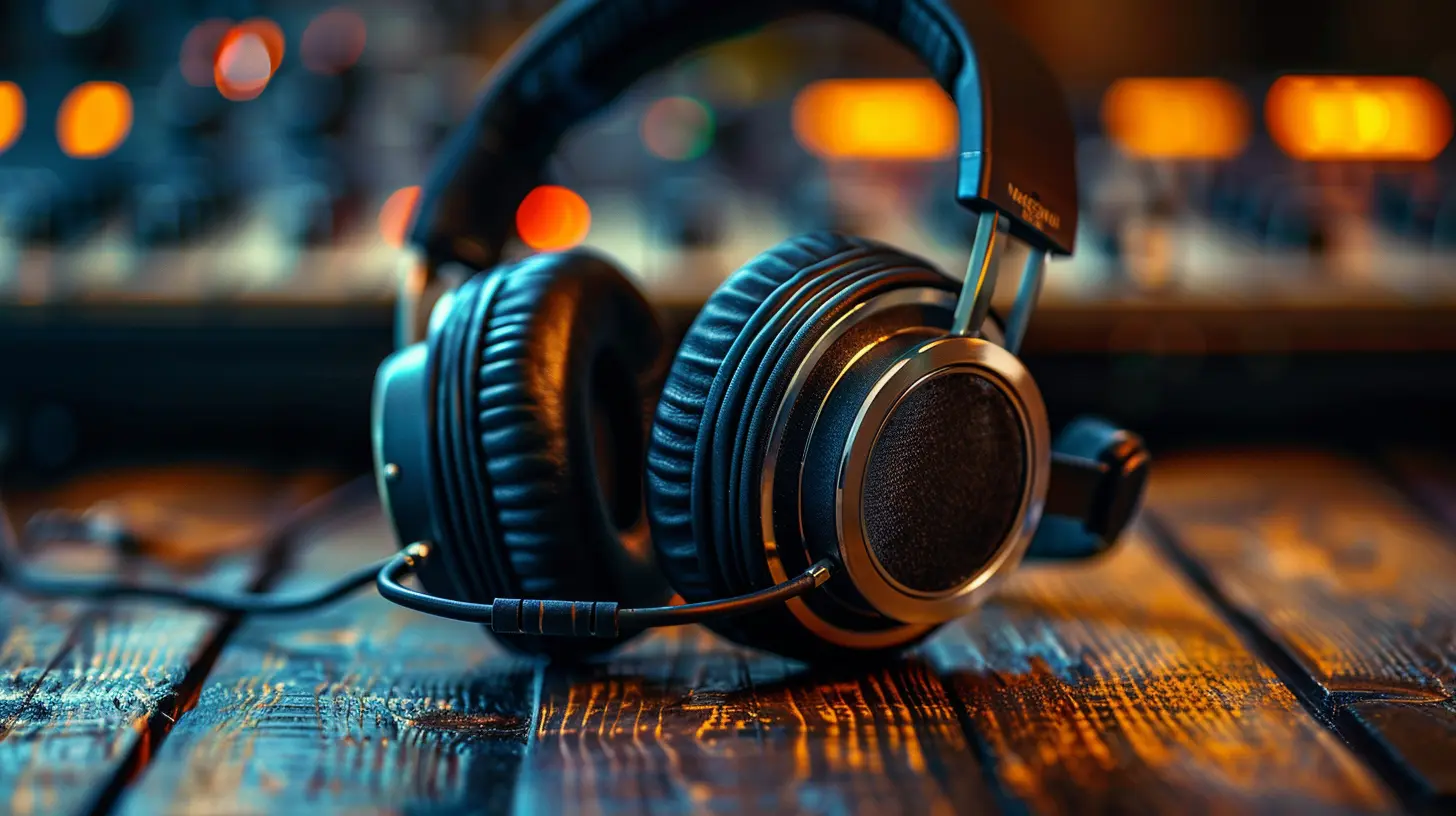Learning English with Music: Songs That Teach Grammar and Vocabulary
14 July 2025
Learning a new language can sometimes feel like a never-ending uphill battle. But what if I told you that you could improve your English skills while jamming to your favorite tunes? Sounds fun, right? Well, that’s because it is!
Music is a powerful tool for language learning. It helps with pronunciation, rhythm, grammar, and vocabulary—without making you feel like you're studying. In this article, we'll dive deep into how music can boost your English skills and explore some amazing songs that make learning grammar and vocabulary a breeze.

Why Music Helps You Learn English
Ever had a song stuck in your head for days? That’s because music has a way of embedding itself into our memory. When you listen to songs in English, you’re not just enjoying the melody—you’re absorbing words, phrases, and sentence structures without even realizing it.Here’s why music is such an effective language-learning tool:
- Repetition Reinforces Learning – The more you hear a word or phrase, the more likely you are to remember it. Songs often repeat lyrics, making it easier for your brain to retain new vocabulary and grammar structures.
- Improved Pronunciation – Listening to native speakers sing helps you pick up on pronunciation, intonation, and the natural flow of the language.
- Context Makes Understanding Easier – Unlike textbook exercises, songs provide context. You hear words being used in real-life scenarios, which makes them easier to remember.
- It’s Fun and Motivating – Let’s be real—studying grammar rules from a book can be boring. But learning English through music? That’s entertainment!
Now, let’s get into the good stuff—songs that actually teach grammar and vocabulary!

Songs That Teach English Grammar
1. "Let It Be" – The Beatles (Imperatives and Simple Present)
Ever noticed how this classic uses the imperative tense? "Let it be" is a great example of how imperatives work. This song also makes use of the simple present tense, making it a fantastic learning resource.💡 Grammar Focus: Imperatives, Simple Present
🎧 How to Use It: Try singing along and paying attention to the way the verbs are used. You can even create sentences using similar structures!
2. "We Will Rock You" – Queen (Future with ‘Will’)
If you're trying to understand the future tense, this song is your best friend! The phrase “We will rock you” is a perfect example of using "will" to talk about future actions.💡 Grammar Focus: Future Simple Tense (‘will’)
🎧 How to Use It: Try replacing “rock” with different verbs to create your own future sentences. Example: We will help you! or We will teach you!
3. "If I Were a Boy" – Beyoncé (Second Conditional)
This song beautifully illustrates the second conditional, which is used to talk about hypothetical situations. The phrase “If I were a boy” follows the correct grammatical structure for unreal conditions.💡 Grammar Focus: Second Conditional (If + past simple, … would + base verb)
🎧 How to Use It: Think of different “what if” situations and practice using the second conditional. Example: If I were rich, I would travel the world!
4. "Somebody That I Used to Know" – Gotye (Past Simple & Used to)
This emotional song is a great way to learn how to express past habits using “used to” and the past simple tense.💡 Grammar Focus: Past Simple, Used to
🎧 How to Use It: Write down a few things you used to do when you were younger. Example: I used to play video games every weekend.
5. "Ain’t No Sunshine" – Bill Withers (Ain’t & Negative Contractions)
This classic tune is a great example of how contractions and informal English are used in everyday speech. The phrase “Ain’t no sunshine” is a non-standard way of saying “There isn’t any sunshine.”💡 Grammar Focus: Negative Contractions (ain’t, won’t, can’t)
🎧 How to Use It: Try converting informal sentences into standard English. Example: Ain’t no sunshine → There is no sunshine.

Songs That Teach English Vocabulary
1. "Hello" – Adele (Greetings & Emotions)
This song is a powerhouse when it comes to learning vocabulary related to emotions and greetings. Words like “hello,” “talk,” “outside,” and “anymore” are commonly used in daily conversations.💡 Vocabulary Focus: Greetings, Emotional Expressions
🎧 How to Use It: Write a short dialogue using the new words you learn from the song. Example: Hello, how have you been?
2. "Happy" – Pharrell Williams (Positive Adjectives)
This upbeat song is filled with positive adjectives like “happy,” “hot air,” “bad news,” and “taking a break.” It’s excellent for boosting your vocabulary around emotions and moods.💡 Vocabulary Focus: Adjectives (feelings and moods)
🎧 How to Use It: Make a list of adjectives from the song and use them in your own sentences. Example: Today, I feel happy and energetic!
3. "Counting Stars" – OneRepublic (Idioms & Expressions)
This song is packed with idioms like “counting stars” (dreaming about success) and “sink in the river” (lose everything). Idioms are an essential part of learning English naturally!💡 Vocabulary Focus: Idiomatic Expressions
🎧 How to Use It: Write down a few idioms from the song and try using them in conversations. Example: She’s always counting stars instead of working on her goals!
4. "All of Me" – John Legend (Romantic & Descriptive Words)
If you’re looking to expand your vocabulary related to love and relationships, this ballad is full of phrases like "curves and edges," "perfect imperfections," and "risk it all."💡 Vocabulary Focus: Love & Relationships, Descriptive Language
🎧 How to Use It: Create sentences using the descriptive words from the song. Example: Her smile has perfect imperfections!
5. "Firework" – Katy Perry (Motivational Words and Metaphors)
This song is full of motivational and figurative language, with phrases like “ignite the light” and “own the night.” It's an excellent song to learn metaphors and inspiring vocabulary.💡 Vocabulary Focus: Metaphors, Motivation
🎧 How to Use It: Pick a metaphor from the song and explain it in your own words. Example: "Ignite the light" means to bring out your true potential and shine!

How to Use Music for Learning English
So, how do you make the most of music when learning English? Here are some practical tips:✔️ Listen Actively – Instead of just playing songs in the background, focus on the lyrics and try to understand their meaning.
✔️ Sing Along – Singing helps with pronunciation and fluency. Plus, it makes learning more fun!
✔️ Look Up Lyrics – Read along with the lyrics while you listen to improve reading comprehension.
✔️ Write Down New Words – Keep a notebook of new words and phrases you learn from songs.
✔️ Practice Speaking – Try using new words and grammar structures in your daily conversations.
Final Thoughts
Learning English doesn’t have to be all about textbooks and grammar drills. Music is an enjoyable and effective way to improve your grammar, vocabulary, and pronunciation without feeling like you're studying.Next time you put on your favorite song, pay attention to the lyrics. You might just pick up new English skills without even realizing it! So, what are you waiting for? Turn up the volume and start learning English with music today!
all images in this post were generated using AI tools
Category:
English As A Second LanguageAuthor:

Bethany Hudson
Discussion
rate this article
1 comments
Rosanna Warren
This article highlights a creative approach to language learning. Using music not only makes grammar and vocabulary engaging but also fosters a deeper emotional connection to English.
July 29, 2025 at 10:22 AM

Bethany Hudson
Thank you! I'm glad you found the approach engaging and impactful. Music truly enriches the language learning experience!


